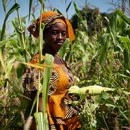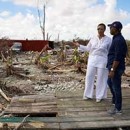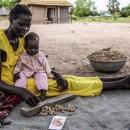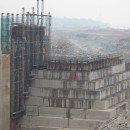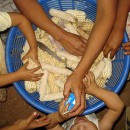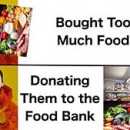Friday, June 9, 2023
News and Views from the Global South
Combating Desertification and Drought
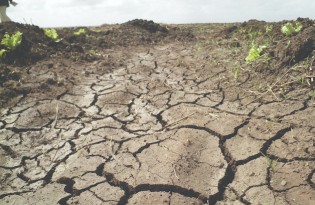
Can African Farmers Still Feed the World?
Less than a decade ago, Africa was home to 60-65% of the world’s uncultivated arable land and 10% of renewable freshwater resources, as reported by the African Union in 2016, while concluding that African farmers could feed the world.
Traceability and Deforestation
New European Union regulations mean only “deforestation-free” products can be sold there. Forests cover 31% of the globe’s land surface, with most of the Earth’s biodiversity, and play an essential role in mitigating climate change.
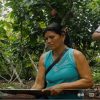
UNDP Assistance Helps Farmers to Meet New EU Deforestation Rules
The UNDP has assisted cocoa farmers from the Peruvian Amazon to ensure the commodities meet European Parliament regulations. The regulation prohibits the placing of products on the market if their production has led to deforestation.
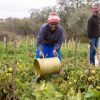
Managing Water Sustainably Is Key To the Future of Food and Agriculture
In contrast to its strategic role as an essential resource to help achieve community development and poverty alleviation globally, groundwater has remained a poorly understood and managed resource.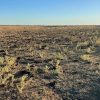
Long, Costly Drought Drives Climate Crisis Home in Argentina
Martín Rapetti, a fourth generation farmer in the province of Corrientes in northeastern Argentina, has already lost more than 30 cows due to lack of food and water, as a result of the long drought that is plaguing a large part of the country. “There is no grass; the animals have to sink their teeth into the dry earth,” he says with resignation.
War, Famine, Disease, Disasters – 2022 – a Year Staring at Apocalypse
A year that started with Russia’s invasion of Ukraine and is ending with famine in Africa, while still spreading death and misery through an enduring pandemic and a deteriorating climate crisis -- 2022 has been an apocalyptic warning of the frailty of our planet and the woeful shortcomings of humankind.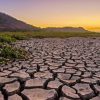
This Planet Is Drying Up. And these Are the Consequences
Drought is one of the ‘most destructive’ natural disasters in terms of the loss of life, arising from impacts, such as wide-scale crop failure, wildfires and water stress.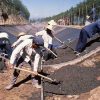
Developing Countries Must Grow More Food
Climate change and war on Ukraine a wake-up call
As our planet continues to heat up, extreme weather has affected many of us. From the west coast of North America across Europe, the Middle East and Asia to Pakistan and New Zealand, wildfires and flash floods have destroyed homes and property and disrupted the daily lives of millions.
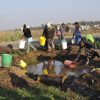
‘And of Water We Made Every Living Thing’
This is how the Muslims’ Holy Book - the Quran refers to the most precious element of life.
An Integrated Regional Response for the Sahel Crisis
The current Ukraine-Russia conflict is dominating the global media to the point of overshadowing longer protracted crisis that no longer make headlines, but are still rife. Such is the case with the on-going Sahel crisis, one of the world's most neglected ones, where acute poverty, the dramatic effects of climate change and rising armed conflicts have become the norm for more than a decade. A situation further exacerbated by the on-going COVID-19 pandemic.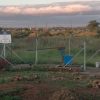
Zimbabwe Turns to Boreholes Amid Groundwater Level Concerns
Faced with cyclical droughts and low water levels in supply dams, Zimbabwe is turning to boreholes for relief, raising concerns about already precarious groundwater levels across the country.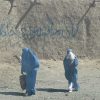
Taliban: The Return of Misogynistic Gynophobes in Afghanistan
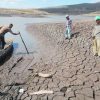
The Risks of Turning Planet Earth into a Giant Desert
The message is clear: three-quarters of the world’s population will be affected by drought by 2050. Does it sound too far in time? Well, your kids might be among the billions of humans living on a desertified planet.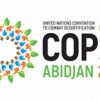
No Climate Transition Without Securing Land Rights
The landmark land tenure decision by parties to the UN Convention to Combat Desertification (UNCCD) in 2019 offers a blueprint for upcoming climate negotiations in Sharm El Sheikh in November.
Bringing Seeds of Hope to Farmers
Amidst a backdrop of rising food insecurity worldwide and a global food supply chain crisis, many countries are attempting to increase the level of food self-production. One improved input for farming which is receiving renewed attention is improved seed. The two most populous countries in the world, China and India, have recently made ground-breaking moves to improve their competitive position by developing new seeds which will improve their food production and increase resilience to climate change. So far, in 2022, new regulations on using biotechnology (genetic modification and gene editing) have been put in place by both countries to ultimately allow smallholder farmers to benefit from these new seeds.
Landmark UN Report Issues Stark call for Sustainable Land Management to Save Human Health
With 50% of humanity affected by land degradation, the world must move to a ‘crisis footing’ to conserve, restore and use land resources sustainably, a major UN report has said.
Traditional, Time-Tested Methods and a Modern App Helps Beat Climate Change
Even as erratic weather and extremely high temperatures increase pest infestation and affect harvests, a combination of traditional methods, integrated pest management through intercropping and multilayering is helping farmers in Ahmednagar and Aurangabad districts of Maharashtra, India.
How a Massive Climate Project Can Help Win Peace for Ukraine – And Help African Job + Food Crises
How would the late Archbishop Desmond Tutu have reacted to the Russian Invasion of Ukraine? Differently than you might think. The invasion of Ukraine is a mass human tragedy. It is killing Ukrainians, exposing families to violent atrocities, and has driven a refugee crisis of over 4 million people and counting. The war in Ukraine has also reawakened our fear of global war - even nuclear war - and the importance we place on global peace.
Indian Agriculture Towards 2030
India began its journey as an independent nation in 1947 with fresh memory of the Bengal Famine of 1943 which claimed 1.5 to 3 million lives. Against this backdrop, the First Five Year Plan (1951-56) prioritized agriculture which, however, shifted to heavily industrialization in the second Plan.
Bangladeshi Lawyer Rizwana Hasan Awarded International Women of Courage Award
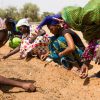
The New World Wonder: a 100 Million Hectares Wall to Protect Africa
Once completed in 2030, it could well be considered the world’s eighth wonder, this time natural. It is the African-led Great Green Wall or the largest living structure on the planet – an 8.000 kilometres natural hit stretching across the entire width of the continent.Next Page »

